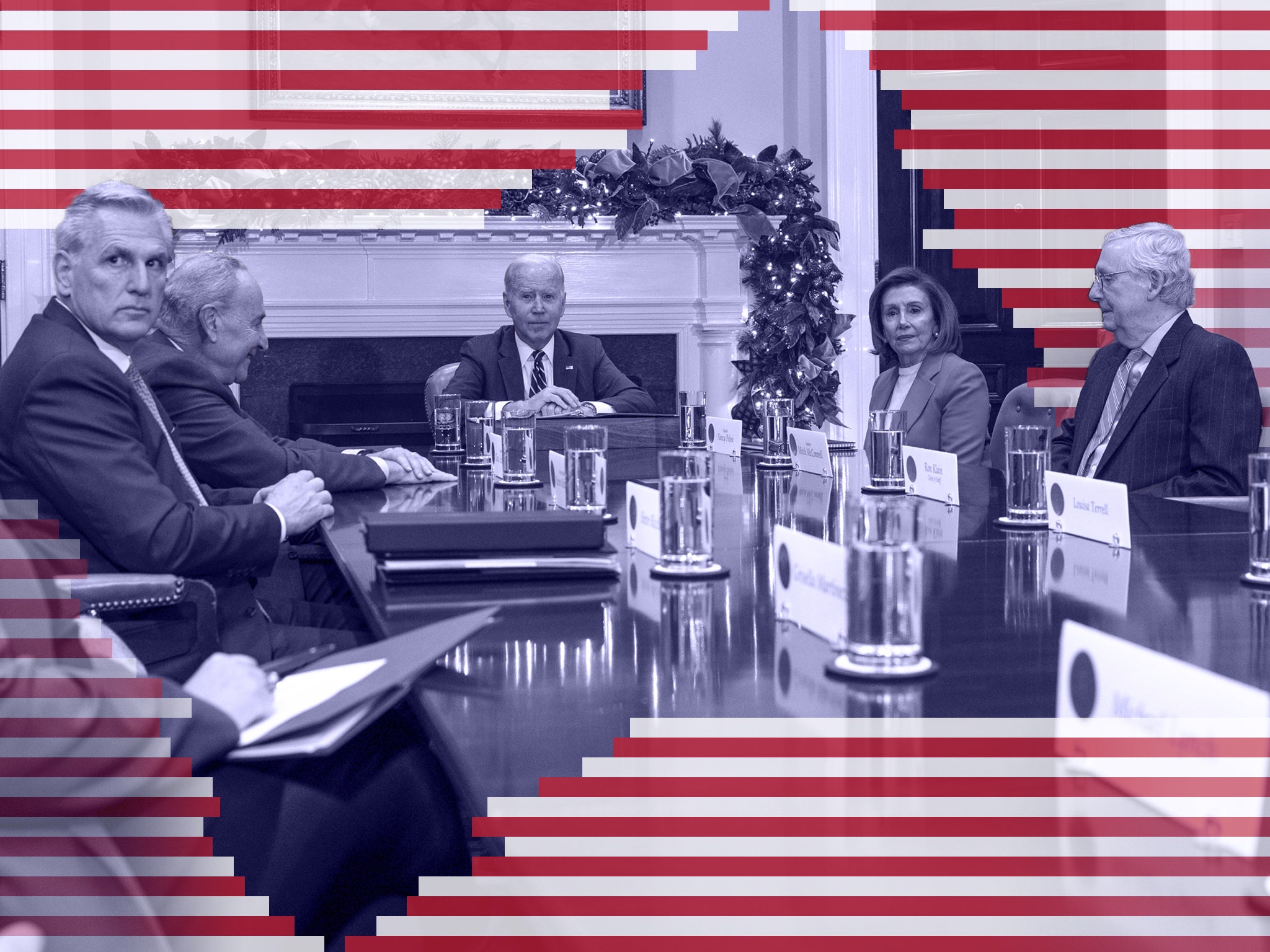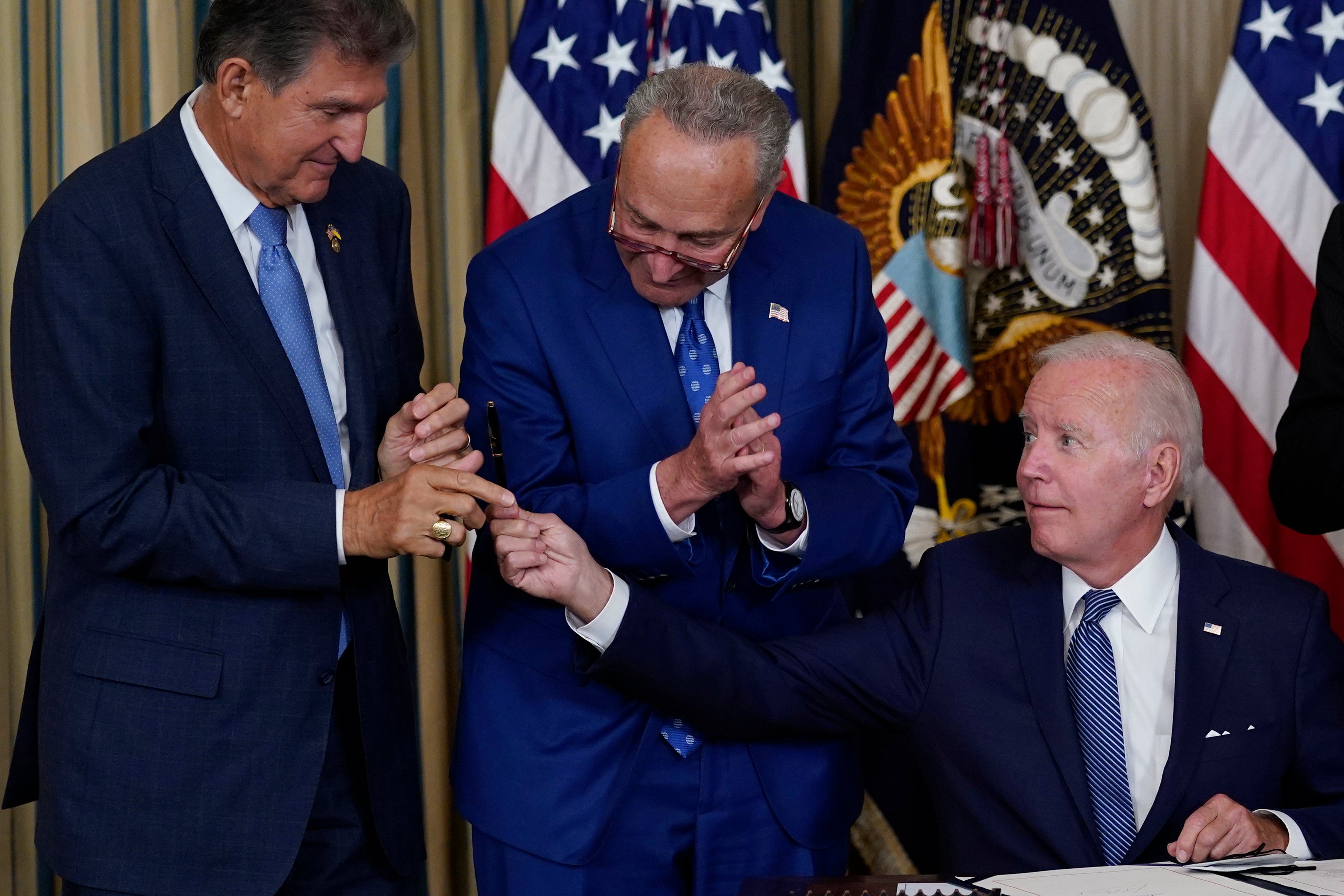How Biden the dealmaker faced down a deeply divided DC
Joe Biden was the Obama administration’s top dealmaker as vice president. Experts tell Andrew Feinberg he’s continued that streak as president


Your support helps us to tell the story
From reproductive rights to climate change to Big Tech, The Independent is on the ground when the story is developing. Whether it's investigating the financials of Elon Musk's pro-Trump PAC or producing our latest documentary, 'The A Word', which shines a light on the American women fighting for reproductive rights, we know how important it is to parse out the facts from the messaging.
At such a critical moment in US history, we need reporters on the ground. Your donation allows us to keep sending journalists to speak to both sides of the story.
The Independent is trusted by Americans across the entire political spectrum. And unlike many other quality news outlets, we choose not to lock Americans out of our reporting and analysis with paywalls. We believe quality journalism should be available to everyone, paid for by those who can afford it.
Your support makes all the difference.When Barack Obama needed to cut a deal with the Republicans who controlled at least one half of Capitol Hill (or more) for three quarters of his presidency, he turned to someone who, as of 2009, had spent nearly half his life there.
Because Mr Obama lacked the sorts of relationships with lawmakers that presidents have called on to negotiate the tougher points of legislation, it was Joe Biden, then the Vice President of the United States, who became the White House’s top emissary to Capitol Hill when the GOP needed a partner whose word they could trust in the executive branch.
Mr Biden drew on friendships he’d cultivated over three decades representing Delaware in the upper chamber to find solutions to crises that were often brought about by intransigent Republicans playing a yearly game of chicken on must-pass matters such as funding the US government or raising the government’s statutory debt limit.
Six years later, many of the legislators he once served alongside in the Senate are gone, but Mr Biden’s deep knowledge of Capitol Hill has enabled him to play a role in midwifing what many observers are calling the most prodigious legislative output of any Congress in recent memory onto his desk. It’s a two-year record which some Democrats have compared to that of the first-term output of Franklin Roosevelt or Lyndon Johnson, and one he’s compiled without the aid of the large congressional majorities that accompanied those presidents’ terms in office.
With an evenly divided Senate and a five-vote margin for Democrats in the House of Representatives, Mr Biden has presided over legislative successes even his most fervent cheerleaders would not have predicted when he was sworn in.
As Mr Biden’s first term reaches its halfway point, his signature has written into the books of law a once-in-a-generation bill to pump $1.2 trillion into revamping America’s roads, bridges, railways, water supplies and broadband lines, invested another $280bn in the “CHIPS and Science Act” to boost US semiconductor manufacturing, and enacted landmark tax reforms and transformational policy changes in the Inflation Reduction Act, including record investments in fighting climate change, giving Medicare the power to negotiate prescription drug prices and a cap on insulin purchases for seniors.
He has also put his pen to bills pertaining to hot-button issues that would never have seen the light of the day in years past, including the first new gun safety legislation to pass Congress in decades, and a bill to codify same-sex and interracial marriage rights into law that would have been the stuff of liberal pipe dreams when Mr Biden was in the Senate.
Matt Bennett, a co-founder of the centrist think tank Third Way, said it would be “impossible” for an objective observer to consider Mr Biden’s record thus far “anything other than … a spectacular run of legislating in his first two years”.

“By modern standards, it was miraculous,” he said. “Especially given the fact that he had a 50-50 Senate and a tiny majority in the House, and a coalition that spanned from Bernie Sanders and Cori Bush to Joe Manchin, and a Republican opposition that is as implacable as any we've seen since the Civil War.”
Mr Bennett said early suggestions that Mr Biden’s ambitious legislative agenda would put him in the company of transformational leaders such as Johnson and FDR “was always insane” because both of those presidents commanded support from “huge Democratic waves” in the elections that brought them to power.
“The idea that he was going to be able to recreate the New Deal, or the Great Society with a 50-50 Senate was bonkers … but I would have to say that his legislative achievements rival any presidents of the modern era, including those two guys, given the level of difficulty faced,” he said, adding later that Mr Biden’s ability to stomach compromises and work with Congress gave him an advantage that some of his recent predecessors have lacked.
“For Joe Biden and the rest of America, the word compromise is not dirty … he views it as the way a divided country should be governed. And he made some compromises, he did not shoot for the moon on all of these things, he did what was necessary and possible and was content with that — his reach did not exceed his grasp,” he said.
Norm Ornstein, a congressional historian and emeritus scholar at the American Enterprise Institute, told The Independent that Mr Biden benefited significantly from what he described as a recognition by Senate Republicans that they would suffer electorally if they didn’t go along with plans to move major infrastructure legislation through the upper chamber to address pressing problems, and a desire to boost US competitiveness with China via the semiconductor bill Mr Biden signed into law.
But he pointed out that even though those conditions were “favourable to action”, none of the legislation Mr Biden signed over the last two years would’ve gotten to his desk without him and his aides’ involvement.
“You need to have a savvy White House, working together with savvy leaders. And here, I give some credit to Biden, Ron Klain, and the political team at the White House, but also a whole lot of credit to their legislative team, which is really, really strong,” he said.
Julian Zelizer, a Princeton University historian, also concurred with the positive assessments of the Biden administration’s legislative accomplishments over his first two years in a phone interview with The Independent.
“In terms of his legislative record, it's certainly impressive. If you're just looking scale and scope, he's been able to get significant legislation through, which in itself is significant given the narrow majority he had,” he said.
Mr Zelizer said he doesn’t know if Mr Biden’s programme will be rated by historians as akin to the New Deal or Great Society, but added the caveat that he isn’t sure if such transformational agendas are even possible given the constant polarisation in Congress and the realities of modern politics and media.
“Contextually, this is a lot of big impact bills. In terms of the condition of the party, it's probably better than we expected,” he said. He added that Mr Biden’s success has come from being “very steady”.
“He hasn't allowed the kind of extremism of the party to shake what he wants to do. He just continues to focus on his priorities,” he said.








Join our commenting forum
Join thought-provoking conversations, follow other Independent readers and see their replies
Comments